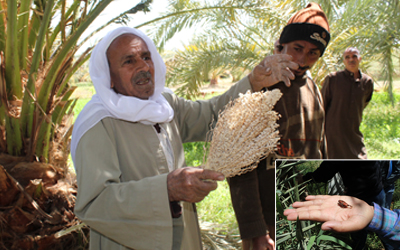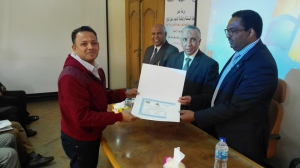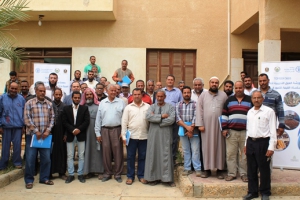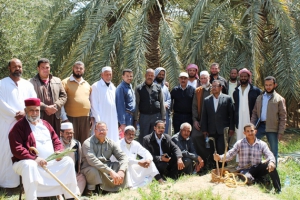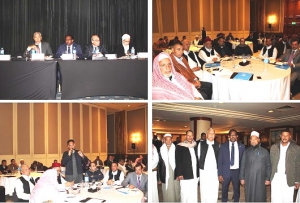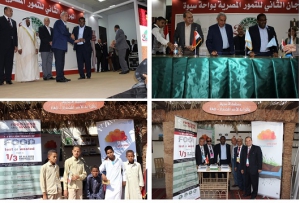Egypt is ranked in the first place among the top five date –producing countries in the world (with a production of 1,465,030 tons in 2014) and having a good potential of semi dry varieties (especially Sewi and introduced variety “Medjool” ) suitable for export but despite the growth in the international demand, its export-contribution to the international Dates market is low.
Major constraints for date sector are: lack of technical know-how on production practices of good dates; too many uneconomic varieties; lack of trained man power; negative effect of Pests and disease (Mainly - Red Palm Weevil [RPW]) on the production and the expansion of date palm; lack of sufficient postharvest and processing knowledge and facilities; lack of quality control regime; weak market information system ; Lack of availability of reliable statistics for the date sector; very low per capita consumption of dates (13 kg in Egypt Vs. 35 kg in Saudi Arabia); marketing problems at the national, regional, and international level and the most major constraint is the lack of effective value chain linkages for the whole date sector (linkage between the farmers, the traders/Collectors; the packers/processors).
To overcome these problems and constraints, - value chain linkages component through a plan of action would strengthen capacity of stakeholders to work with each other to pursue common economic interests.
In the context of a forthcoming national plan of action for the development of the Date Sector, this project aims to promote a model of success for date value chain development in one of the date producing regions to be replicated by other date-producing regions in the country.
Siwa is suggested to be the nucleus oasis where the activities of the TCP will be mainly implemented aiming to improve the value chain for dates during two years with a special effort to identify the potential suitable varieties for national and International Markets with the best pollinators and to implement genetic collection plantations in order to preserve the indigenous date palm genetic resources. This project will also pave the way to achieve the national strategy for date palm value chain improvement.
The project will also allow enhancing the capabilities and improving the Dates value chain for a sustainable production, processing and marketing of Dates in Egypt. This project will also contribute to the identification and conservation of important Date varieties to be implemented in two regions of the country.
Objectives
The project will aim to improve the capacity of multiple small and medium sized farmers, collectors and traders, dates packers (Dates Factories & Packing houses) and processors to improve the quantity and quality of date value chain in Egypt. In addition and for the sustainability of the date sector a special attention is given to the establishment of gene collections of Egyptian date varieties.
Main Activities
- Production of Palm trees
- Protection of diseases which may affect Palm trees
- Post-Harvest
- International Market of Dates
Stakeholders
- The private sector (Producers, Packers & Processors)
- Ministry of Agriculture and Land Reclamation (MALR) staff, (the agriculture officers and extension staff will be important beneficiaries of the project as they will be trained and skilled to deliver enhanced support to the farming communities in Siwa (Egypt), particularly the women farmers/workers as they play a lead role in date production)
- The Ministry of trade and Industry (MTI) staff, through the food and Agro-industries Technology Center, The Egyptian Dates Association (EDA) and Siwa Community Development and Environment Protection Association (SCDEPA) will also be better able to deliver on-going support to its extended network of farmers and farmer groups.
- Ministry of Agriculture and Land Reclamation (MALR) staff National date palm research institutions including the relevant palm dates laboratories and regional stations of ARC, MALR Extension Staff in Siwa, Egyptian universities and Tissue Culture laboratories

